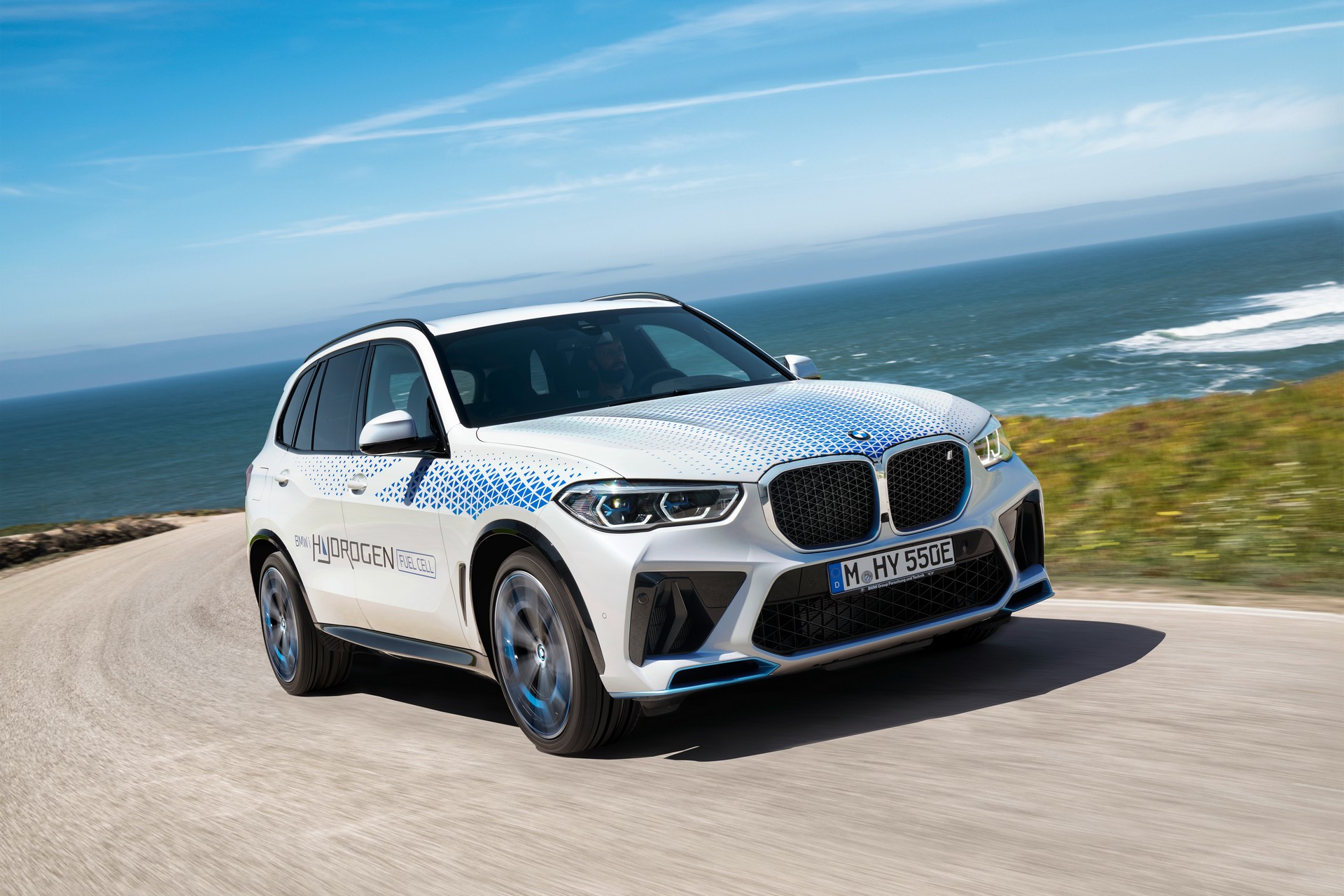Back in 2021 at the Munich Motor Show, BMW revealed the iX5 Hydrogen, a hydrogen fuel cell-powered version of the standard X5 SUV. And while that vehicle is set to begin production this year, it will only be made in small numbers. Now, a new report from Nikkei Asia suggests that a mass-market hydrogen BMW could be here within the coming years.
Sales chief Peter Nota told Nikkei that production and sales of a BMW hydrogen fuel cell vehicle could begin as early as 2025. He also suggested that the first of these vehicles would likely be an SUV, given the segment’s popularity and their belief that hydrogen technology is “particularly relevant” to that body style. Seeing as hydrogen vehicles are able to refuel just as quickly as their gas-powered counterparts, and they don’t lose range with variations in temperature, we’d be inclined to agree.
Read More: BMW iX5 Hydrogen Shows Off Its Fuel Cells In Munich
Not only that, but the report also states that the vehicle will be jointly developed with the help of Toyota, a company they already have a relationship with. “We have various projects we work on with Toyota,” Nota told Nikkei Asia. BMW already worked with them to create the GR Supra, which shares many components with their Z4 roadster, and its likely they’re enlisting the Japanese marque’s help again because of their experience developing and producing hydrogen vehicles like the Mirai. In fact, the two have created a hydrogen vehicle together in the past, a BMW 5-Series GT with a Toyota fuel cell stack, but it was just a prototype.
See Also: BMW’s Fuel Cell X5 Previewed By i Next Hydrogen Featuring Tech Jointly Developed With Toyota
Nota, and by extension BMW, see hydrogen vehicles as one way to overcome some of the challenges posed with pure electric vehicles. In particular, he mentioned to Nikkei that not all charging infrastructure is created equal and that availability of materials for production is somewhat scarce. As such, they value the notion of not placing all their eggs in one basket. “We do believe in the importance of various technologies – battery electric vehicles, also hydrogen and efficient combustion engines,” said Nota.



